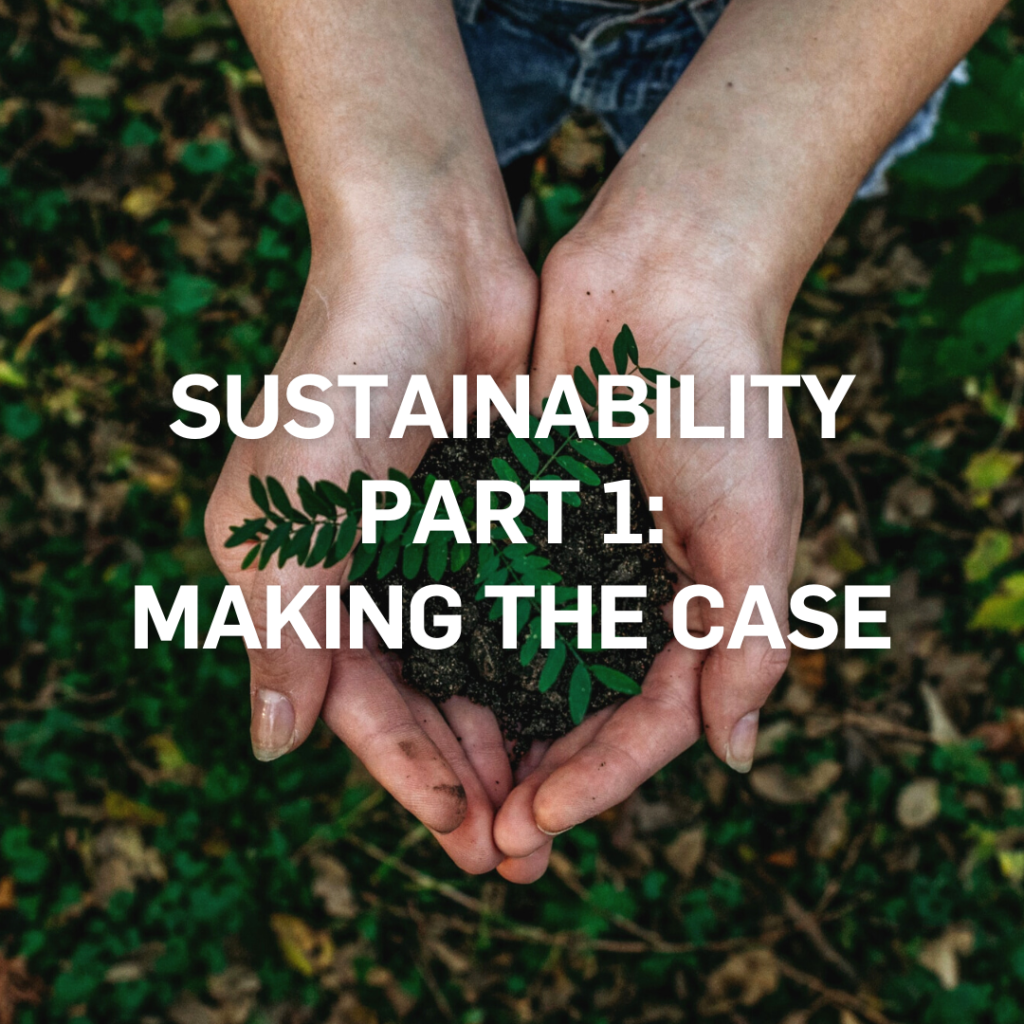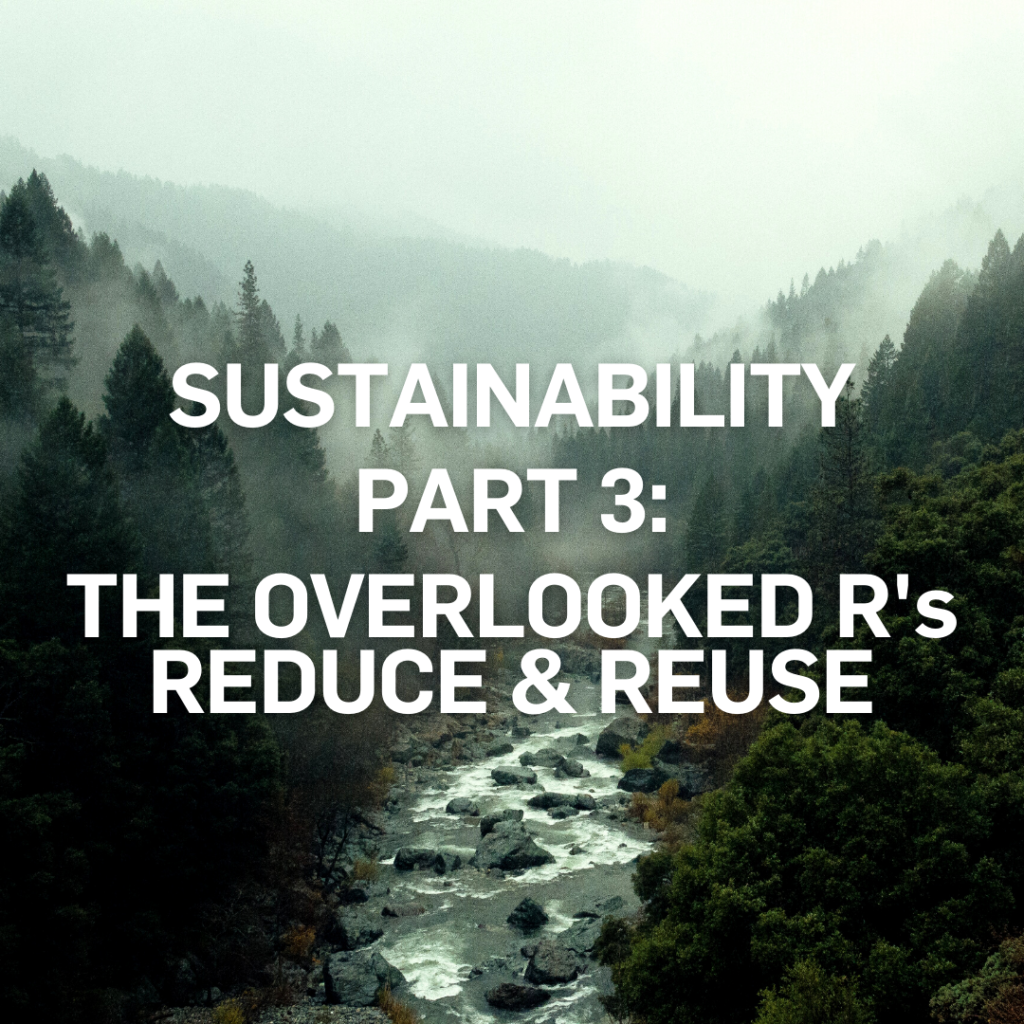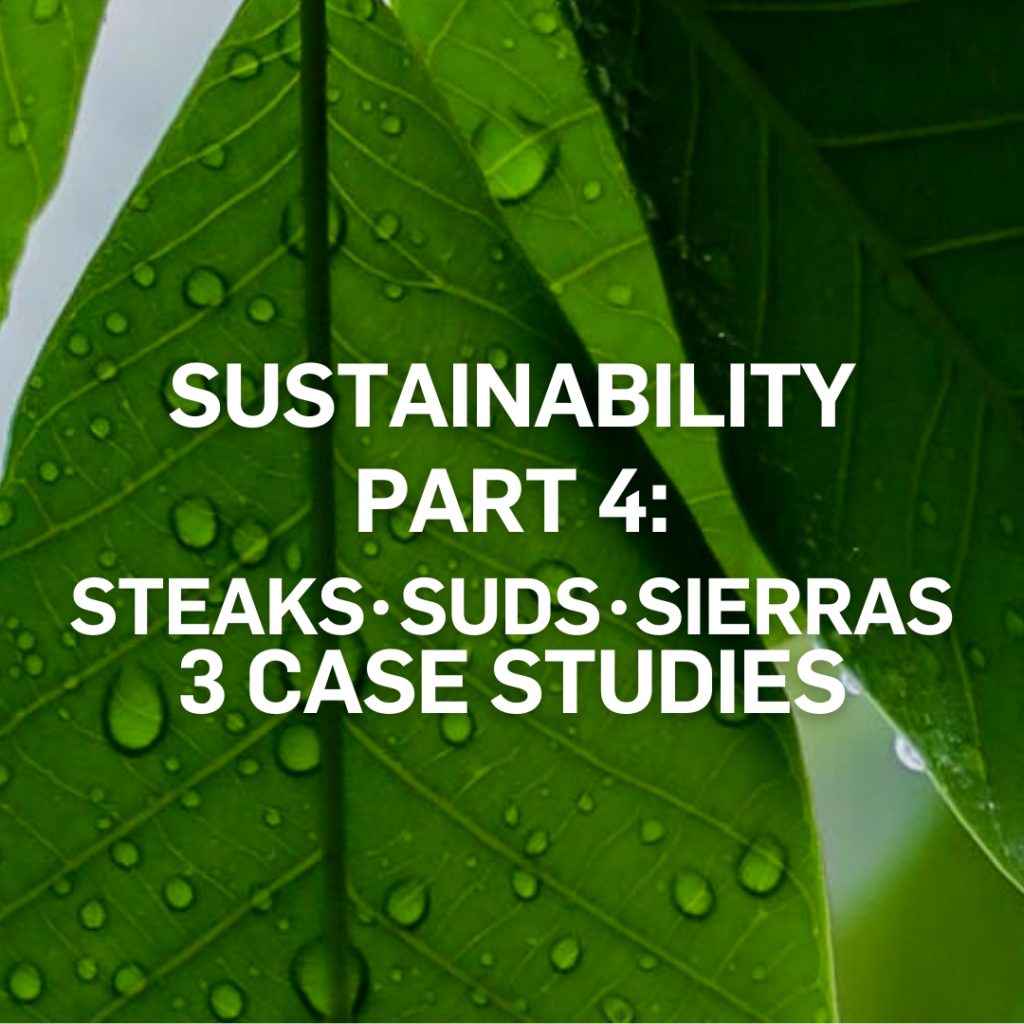Part 2: Marketing Sustainability

How is your brand committed to sustainability? How are you communicating that to your audience? More and more, consumers are making their voices heard. They care about the environment, and they want the brands they support to share that concern.
As marketers, we have a responsibility not only to this audience but to the planet itself. A commitment to sustainability – to limiting carbon footprint, to using recycled materials – is a vital part of a brand’s communication strategy. And as you approach marketing your sustainability efforts, remember these four vital pillars:
Authenticity
Engagement
Humanity
Transparency
Authenticity Matters
Sustainability is intrinsically linked to authenticity. When a brand spouts BS, everyone can smell it. Like when an oil company talks about investing in clean energy. Or when brands selling alcohol or promoting gambling slap a quick “enjoy responsibly” at the end of a commercial, as if absolving them of any responsibility. Some marketing messages strain credulity. Your brand’s sustainability efforts should be authentic, true to the values of your brand, and your customers.
For example, brands that sell outdoor adventure apparel can be authentic by promoting how they help keep the environment safe and clean, whether it’s using recycled materials in clothing, limiting water usage in production, or what kind of recycled paper is used to print their catalogs. The more sustainability efforts reflect the mission and values of your brand, as well as align with the products or service you sell, the more what you do will resonate with your audience.
Engage Your Audience
In today’s marketing world, it seems that every brand is chasing a younger audience. Whether going after the aging Millennial or the emerging Gen Z, brands covet these demographics as they continue to age, settle into careers, and, of course, have more disposable income. And we know these younger consumers care about a lot of things.
Research study after study supports what matters to these people. They care about the environment. They care about their communities. And they want brands that share their values. And as much as any of that, they care about being heard. So when it comes to marketing your brand’s sustainability efforts, make sure you’re not just talking. Make sure you’re listening.
Invite your customers – and just as important, your potential customers – to join the conversation. Engage with them on social media. Share your efforts in the form of content on your website and in emails with articles and posts about how your brand is committed to sustainability.
Create hashtags and ask your followers to share it. Ensure that it’s not just lip service, either. Follow that hashtag. See what your customers are saying. Respond to them. Remember, these audiences care. Prove to them that your brand cares about sustainability by listening to what they have to say, in real time, and following up with real action.
Be More Human
Sustainability obviously impacts the planet, but at its core, it impacts the people who live on the planet. It’s about recycled materials. It’s about carbon footprint. But it’s so much more than that. It’s about the people who live on this planet and how it impacts all of us. People. Sustainability is more than a resource issue. It’s a human issue.
Yes, you should absolutely communicate your brand’s sustainability initiatives. Frame that story around the real, human lives that those efforts support. It’s about being responsible to doing good for the earth. It’s about a responsibility to the people that live here.
To put it in the lexicon of marketing, think about features vs. benefits. Features tell us what a product does. Benefits tell us why it matters. When talking about sustainability, how you are committed to that sustainability is the feature. How it positively impacts people is the benefit.
Honesty and Transparency
The truth is your greatest asset in marketing sustainability. Be honest with your consumers. Are your products responsibly sourced? Do you take initiatives as a company to limit your carbon footprint? Do you use recycled materials in your printed marketing materials? If you don’t do it, don’t say it.
Sustainability is not a topic you should “spin,” for all the reasons listed above. But it is an important part of your marketing message. Be straightforward and accurate in your communication. Whether it’s a matter of correct terminology – responsible vs. sustainable – or proper use and placement of recycling logos, be accurate in how your brand is committed to making the world a better place.
More in the series:

Sustainability matters at J.Schmid. We believe in it personally. We believe in it as an organization. And we believe in the upside for our clients.
Read more to find out why it’s not only the right thing to do, but why it makes good business sense.

Recycling has made tremendous strides in recent years – but when it comes to sustainability, there are two other words we’re missing.
J.Schmid’s VP Client Strategy, Lauren Ackerman breaks down the missing pieces here.

Thankfully there are many brands taking the concept of sustainability seriously.
Read on as J.Schmid’s Copywriter, Devon Clements takes a deeper look into three brands that are uniquely shaped by their dedication to sustainability.
Thanks to Unsplash for the photo by Create & Bloom
Tags: branding, catalog marketing, Matthew Fey, Strategy, Sustainability
